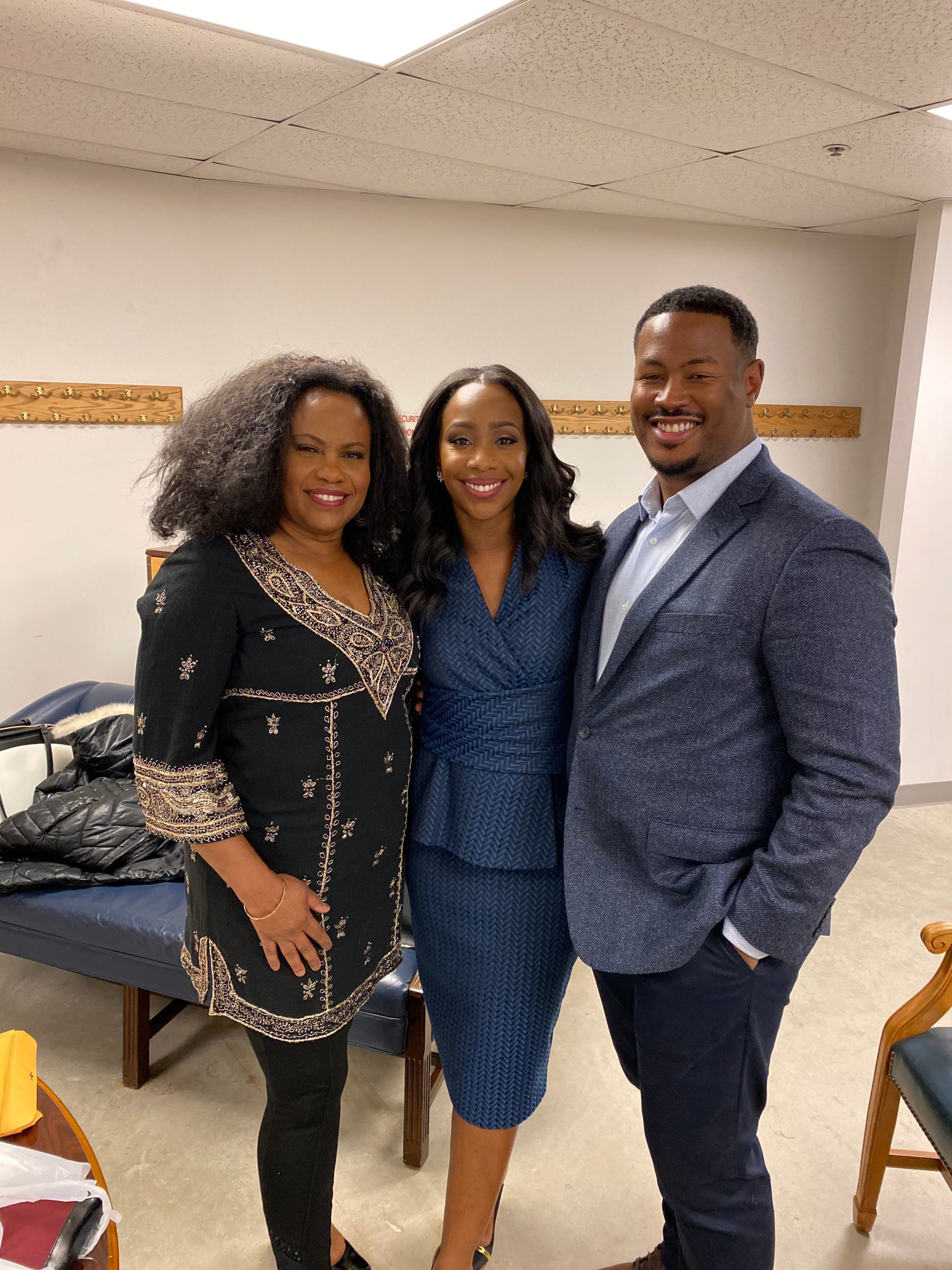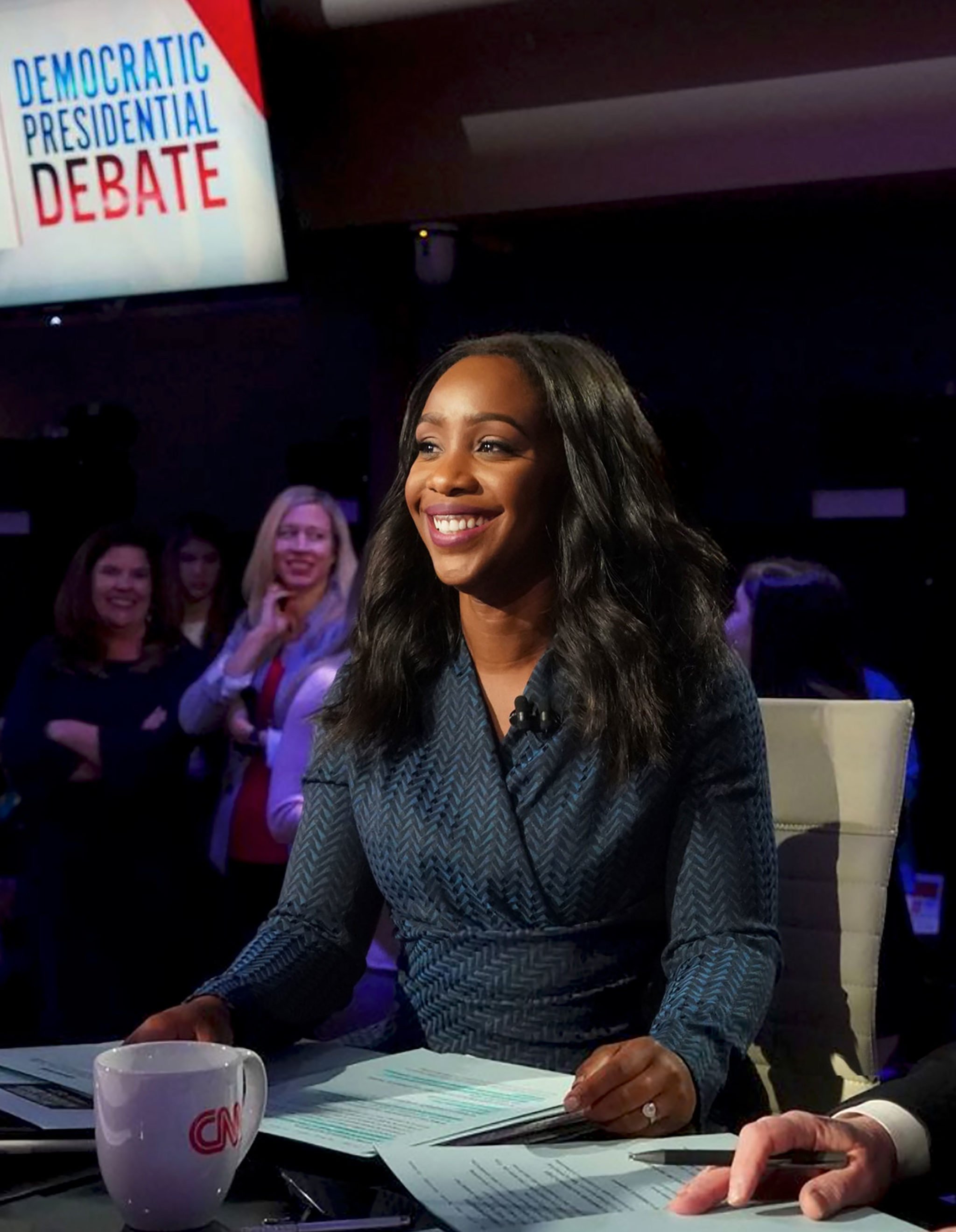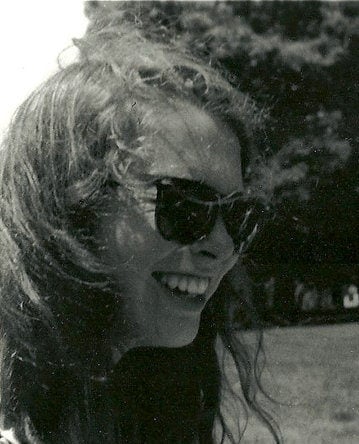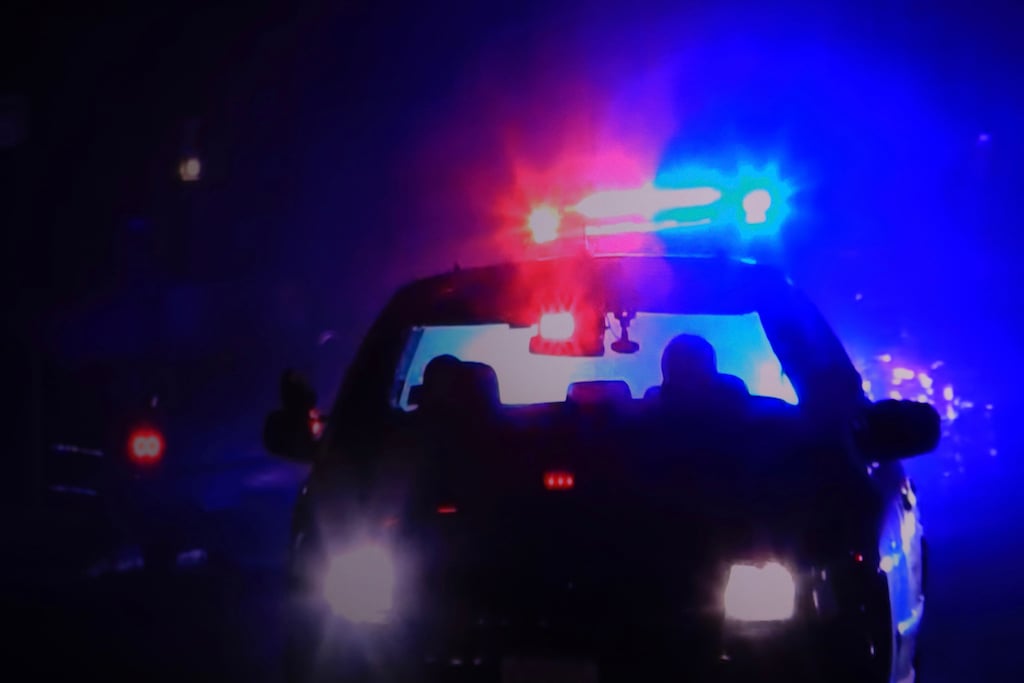Abby Phillip’s breakthrough moment came during those tense, hazy days after the election, when results were still rolling in, election nerds were toggling back and forth between Steve Kornacki and John King, and the networks hadn’t yet called it for Joe Biden. “Can I just say, for Black women, this has been really a proving moment for their political strength,” said Phillip, a CNN political correspondent who co-anchored the network’s unexpectedly stretched-out election coverage with Wolf Blitzer, Anderson Cooper, Dana Bash, and Jake Tapper. “And carrying Joe Biden to the Democratic nomination through the primary—Black women did that.”
Phillip ended the quietly impassioned monologue by noting the significance of Kamala Harris’s presence on the ticket. “And that is the sort of historical poetry that I think we will live with for a long time: In addition to the fact that Donald Trump’s political career began with the racist birther lie, it may very well end with a Black woman in the White House.”
Clips of Phillip’s one-minute talk, which came a night before her network declared Biden the victor, quickly echoed around Twitter, and the response was intense. When HuffPost senior editor Philip Lewis tweeted it out, he got almost 30,000 likes. (And, of course, there was plenty of the nasty pushback you’d expect from certain quarters.) “I mean, it was a profound moment,” says Tapper, who was next to Phillip at the time on CNN’s election set. “There was something special about the fact that there was a Black woman at the desk noting this moment. I wasn’t thinking about whether it was going to go viral. I was just thinking, ‘Wow, what a brilliant observation, and what a special moment to experience.’ ”
![IMG_4834[1] - Washingtonian](https://www.washingtonian.com/wp-content/uploads/2021/02/IMG_48341.jpg)
Phillip, a 32-year-old Washington native, had been selected by the network to sit next to its biggest stars on election night, a move that would have significantly boosted her career no matter what happened next. It was an acknowledgment of her savvy analysis, unassuming gravitas, and undeniable charisma—what Tapper describes as Grace Kelly–like poise.
But the “Black women did that” clip made Phillip something of a media celebrity. In addition to her name recognition, it led to face recognition—literally: Almost two weeks after the election, InStyle.com ran a story on her skin-care routine. You could also Google “Abby Phillip” and read about her love of red dresses with puff sleeves or her favorite afternoon treat (it’s fruit snacks). Phillip was surprised by all the attention, but her words—which she says were partly planned and partly in-the-moment—were meant to have an impact. “I wanted to give voice to the fact that Black women [have been] a relentless force in American politics throughout our history,” she says. “That needed to be specifically called out. Not just for women, not just for women of color, but for Black women.”
Phillip’s attention-grabbing commentary has now earned her a spot atop one of CNN’s highest-profile shows. On January 24, she took over as the host of Inside Politics Sunday from John King. (He continues to anchor the weekday show.) She was also promoted to be the network’s senior political correspondent. But the truth is Phillip had been headed for stardom even before that viral clip. Many CNN viewers got to know her during the most recent campaign season, when she helped anchor the Republican and Democratic conventions for the network and moderated one of the Democratic debates.
She had also earned a different kind of attention in November 2018, when, standing with a group of reporters outside the White House, she asked Donald Trump if he hoped his Justice Department would interfere in Robert Mueller’s investigation. “What a stupid question that is,” said the President, sneering at Phillip. “What a stupid question. But I watch you a lot. You ask a lot of stupid questions.”
![7C767580-1B3F-4293-940B-C1A679B73251[4] - Washingtonian](https://www.washingtonian.com/wp-content/uploads/2021/02/7C767580-1B3F-4293-940B-C1A679B732514.jpg)
It was the third time Trump had berated a Black woman journalist in the span of three days. As Trump lit into Phillip, she refused to break eye contact, continuing to lob questions even as he turned his back. “My focus was not about how I felt being personally attacked,” she says. “It was about: What was the question that needed to be answered? And why wouldn’t the President answer it?”
By that point, Phillip was eight years into a career spent tossing tough questions at important people. Her first journalism job was at Politico, where she covered the Obama administration as well as politics and money. “Politico was at the vanguard of digital journalism and this fast-paced Twitter era that we are deeply into right now,” she says. “I learned, first and foremost, speed and urgency, and newsiness and the adrenaline rush of political journalism.” (Today she continues to treat her almost 650,000 Twitter followers to that plugged-in sensibility, with somewhat more bluntness than other major-media reporters.)
“I had to decide, ‘Do I really want to be on TV every day?’ For some, that might be an easy thing. For me, it was not.”
In 2014, she started a gig as a Washington Post general-assignment reporter, writing stories about the Ebola outbreak and the Charleston church shooting, among many others. She later moved to the national-politics desk, covering Hillary Clinton’s campaign and then the Trump administration.
Working at the Post seemed like a natural next step for Phillip, who had grown up seeing the newspaper every day. Her Trinidadian parents—Carlos, currently a psychology program manager for DC Public Schools, and June, a real-estate agent—moved to the area when Carlos was studying at Howard, and Phillip was born in Alexandria. The family returned to Trinidad for a few years, then settled in Germantown when Phillip was in third grade. After church on the weekend, the family would drive into DC and stop by the Museum of National History or cruise around the monuments. (The FDR Memorial is still one of Phillip’s favorites.)
They later moved to Bowie, where Phillip graduated from Bowie High School before attending Harvard. She was initially on a premed track, but after joining the school newspaper, she realized she was more passionate about reporting. “Growing up, I didn’t know any journalists,” she says. “It seemed like something other people did. Coming from an immigrant family, you want to be a doctor or a lawyer—like those are the two successful careers that you could have.”

Though Phillip’s early focus was on print journalism, she had also been developing her television skills, doing hits on channels like C-SPAN during her Politico days. She eventually started appearing on CNN in 2015 to talk politics as a young Post reporter. Tapper, already a fan of her work at the time, recalls chatting with her in the CNN makeup room before she went on the air as a guest. “I was impressed with her reporting, but then super-impressed with her character,” he says. “I remember telling people at CNN that we should hire her.”
But Phillip was hesitant about making a full-time switch from print to broadcast journalism. Leaving her “hometown newspaper,” she says, was one of the hardest choices of her career. “I had to decide, ‘Do I really want to be on TV every day? Do I really want to have people staring at me every day? For some people, that might be an easy thing. For me, it was not.”
Phillip decided to leave the Post in 2017, joining CNN as a reporter. It was a great opportunity—and it perhaps didn’t hurt that becoming a correspondent at a big network comes with more financial opportunities. Now she’s especially attuned to television’s mass impact—the idea that she can speak directly to millions of people. And that kind of live contact with an audience is vastly different than working at a newspaper, where everything is filtered through a phalanx of editors. “It is an incredible responsibility that you can’t spend a lot of time thinking about,” she says. “But that’s the reality. You might be one of the very first people to say something about this historic moment.”
With the Trump era ending, Phillip is looking forward to a less combative cable-news atmosphere. CNN’s “fake news” antagonists aren’t going away, but she thinks it will be easier to cover the news when the commander in chief isn’t retweeting them. “People really want to be informed,” Phillip says. “They don’t just want to be riled up and made to feel outraged. The more time we can spend doing that and the less time dealing with silly attacks, the better.”
The end of the election cycle means Phillip may have more time to spend at home in DC with her husband, cybersecurity consultant Marcus Richardson, and their Nova Scotia duck-tolling retriever, Booker T. Or maybe not: In addition to her CNN duties, Phillip is now writing a book about Jesse Jackson’s 1988 presidential run.

The book, due in 2022, was partly born of her reporting on the 2020 election. She sees Jackson’s historic campaign as a way to explore the “origins of how Black voters got to be the kingmaker in the Democratic primary that they were this year,” she says. “It is a story about the building blocks of the present-day Democratic party. And it’s not just about race; it’s also about the progressivism-versus-more-moderate debate that we’re still having today—about whether the AOCs of the world or the more moderate Democrats are in charge.”
Meanwhile, expect to see a lot more of her on TV, especially now that she’ll be hosting Inside Politics on Sunday mornings. At a time when media outlets are trying to diversify and young women of color are a fast-growing political force, Phillip feels like the network’s future. “I’ve come to realize, especially since coming to CNN, how important it is for other people to see me where I am,” she says. “I hear from people all over the country—and all over the world—what it means to them to turn on their TV and see someone who looks like me.”
This article appears in the February 2021 issue of Washingtonian.









